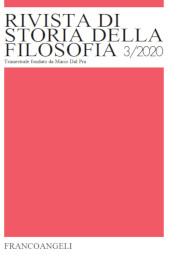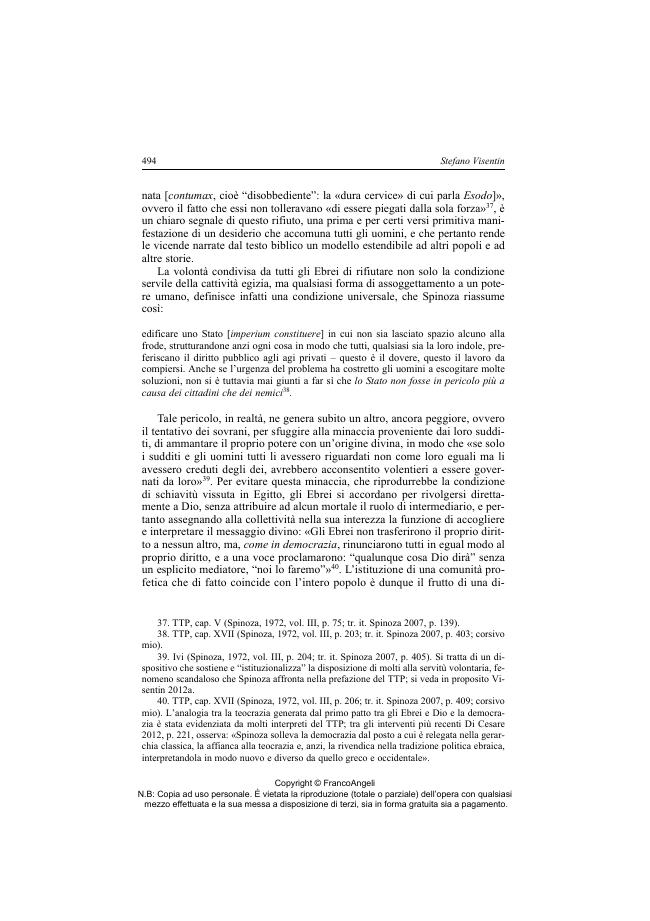La libertà del popolo ebraico : antropologia, storia e politica nel Trattato teologico politico di Spinoza
485-503 p.
The historical reconstruction of the birth of the Jewish theocracy that Spinoza theorizes in his Theological-Political Treatise certainly highlights a gap between the liberation of Jews from oppression and the establishment of an effective and concrete collective freedom. Thus for the Jews, no longer slave though not yet free, the exodus in the desert represents the existential experience of a passage, in both a symbolic and a material term, which makes possible the transformation of a "natural" freedom into a "political" one. In this perspective, the Mosaic pact, due to its original egalitarian nature, expresses the desire to escape the logic of the human domination, establishing an effective educational project within the republic, in which religious rites and ceremonies shape citizens' behaviors.
The institutional role of rituals grounds on human affective imagination, implying the active participation of the whole community; but affects and imagination can also pave the way to a collective resistance against the attempts of political leaders to establish a tyrannical regime. Thus, through the historical reconstruction of the genesis of the Jewish theocracy, Spinoza portrays a journey of liberation from the escape from both external slavery (the exodus) and inner slavery (the creation of a free republic). [Publisher's text].
-
Articoli dello stesso fascicolo (disponibili singolarmente)
-
Informazioni
Codice DOI: 10.3280/SF2020-003006
ISSN: 1972-5558
PAROLE CHIAVE
- Baruch Spinoza, Hebrew Republic, Old Testament, libertas philosophandi, theocracy, freedom



